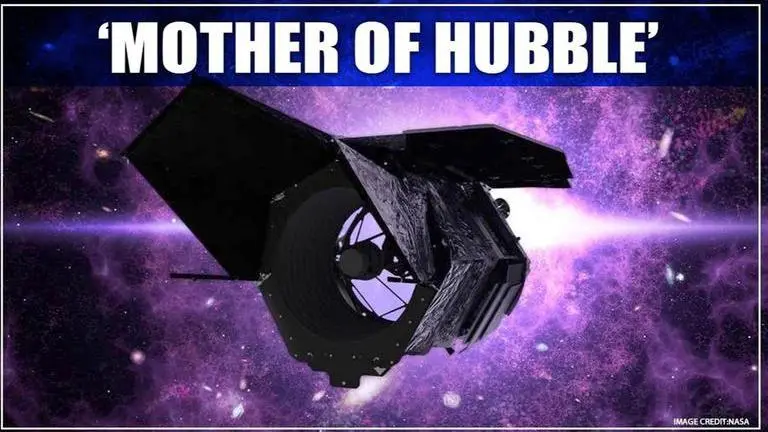Updated 26 May 2020 at 14:04 IST
NASA renames next-gen WFIRST telescope after astronomer Nancy Grace Roman
The National Aeronautics and Space Administration (NASA) has named its next-generation space telescope WFIRST after its first chief astronomer Nancy Grace Roman
- Science News
- 2 min read

The National Aeronautics and Space Administration (NASA) has named its next-generation space telescope, the Wide Field Infrared Survey Telescope (WFIRST), after its first chief astronomer Nancy Grace Roman. She is credited with turning the imagination of Hubble Space Telescope into a reality by setting up a committee to envision it and convincing NASA and Congress about the project’s priority.
Ed Weiler, Hubble’s chief scientist until 1998, called Dr Roman “the mother of the Hubble Space Telescope” as the telescope turned out to be the most scientifically revolutionary space telescope of all time. Thomas Zurbuchen, NASA’s associate administrator for science, said in a statement that Dr Roman was a leader and advocate whose dedication contributed to NASA seriously pursuing the field of astrophysics and taking it to new heights.
“Her name deserves a place in the heavens she studied and opened for so many,” added Zurbuchen.
Leadership and vision
NASA Administrator Jim Bridenstine said that NASA became a pioneer in astrophysics and launched Hubble because of Nancy Grace Roman’s leadership and vision. The former Congressman from Oklahoma said in a statement that he can not think a better name for WFIRST, touted as the successor to NASA’s Hubble and Webb Telescopes.
Former Senator Barbara Mikulski, who worked with NASA on the Hubble and WFIRST space telescopes, said that naming new WFIRST telescope after Dr Roman is fitting as the nation celebrates the 100th anniversary of women’s suffrage. She added that it recognises the incredible achievements of women in science and moves even closer to no more hidden figures and hidden galaxies.
Advertisement
Laura Bates Verreau and Barbara Brinke, Roman’s cousins, released a statement on the behalf of the family saying were delighted that she would receive such public recognition for her great contributions to our understanding of the universe. They said that Dr Roman was a modest person but very determined when she believed in something and firmly believed that space observation would offer years of good science, and this has proven to be the case.
Advertisement
“We want to thank NASA and all of her colleagues who worked so hard to realize this wonderful idea,” said the duo.
Published By : Kunal Gaurav
Published On: 26 May 2020 at 14:04 IST
